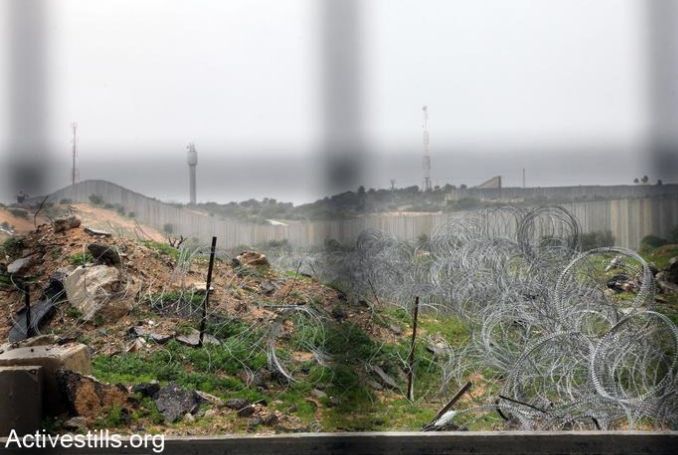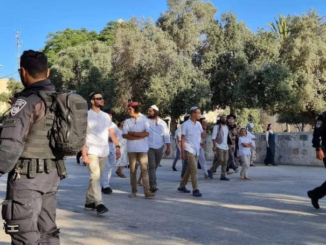
By Benay Blend
As Spring approaches, along with Earth Day, thoughts turn to the environment. This year, because of the Russia/Ukraine war there is heightened concern over environmental destruction in that region. In an area rife with chemical plants, outworn mines, and nuclear power plants, there is good reason for apprehension.
For example, in an article in Grist, Diana Kruzman quotes an analyst from the UN Environment Programme who warns about the need for “ecological monitoring to assess and minimize the environmental risks arising from the armed conflict.”
No doubt this issue will be increasingly in the spotlight as Earth Day 2022 approaches, again on April 22 as it has been every year. The theme this year is “Invest in Our Planet,” a premise that plays into the hands of capitalist consumerism with its focus on individual consumption and a proper lifestyle.
It’s true that the war could cost long-term damage in Ukraine, and environmental harm that will have repercussions beyond its borders. However, there is a question that has been repeated in the past few weeks: But what about Palestine? Surely its worth mentioning that its 74-year Occupation by the Israeli entity has resulted in tremendous suffering in the form of repeated targeting of the occupied population, crop destruction, and more.
As prominent human rights attorney Stanley Cohen has tweeted:
“Memo to Congress…Putin is doing nothing in Ukraine that Israel has not done and worse for 74 years against Palestinians funded by your checkbook.”
The term “greenwashing” has lately seen renewed interest, partly because the Sierra Club is under fire for reversing its decision to cancel educational trips to Israel.
In February 2020 nine social justice groups wrote a letter to Dan Chu, the organization’s Acting Executive Director, charging that their tours encourage a “false image of Israel as environmentally-friendly, these trips erase both the existence of the Palestinian people and Israel’s systemic racism and discrimination against them, and greenwash Israel’s system of apartheid and its illegal colonization of occupied Palestinian and Syrian lands.”
While the Sierra Club initially agreed to cancel, it soon reversed its decision under pressure from Zionist groups and pro-Israel organizations. In response, the coalition charged the group with ignoring the existence of Palestinian and Indigenous people.
As far back as 2010, Stephanie Westbrook documented Israel’s greenwashing of its Earth Day celebrations. On that day, dedicated to promoting an awareness of the need to conserve energy, the irony was not lost on Palestinians in Gaza who suffer from chronic power outages that have grown worse over the years.
As Ashraf Al-Mashharawy notes, blackouts affect every area of life in Gaza, from lack of clean water, food insecurity, to education and healthcare. All of this dates back to 2006, when Israeli airstrikes took out all of the transformers at Gaza’s sole power station. Since then, an Israeli blockade obstructs materials that could be used for reconstruction while periodic bombing makes the situation worse.
In 2010, Westbrook claims, Israeli officials boasted of planting thousands of trees as part of their environmental agenda, but at the same time, they were uprooting Palestinian olive tree saplings, planted by Palestinians for the same purpose.
In that year, the Ministry of Environmental Protection, Westbrook writes, awarded the Israeli Defense Force (IDF) units its top prize for its “excellence in protecting the environment, environmental resources and the landscape.” In particular, the IDF was recognized for its “protection of water sources” and “water savings.”
For Palestinians, this might have raised some questions. According to a 2010 report by the human rights group B’Tslem, nearly 95 percent of the water pumped in the Gaza Strip is polluted. Since 2007, Israel has blocked the entry of equipment and materials that could be used to rebuild the water-treatment systems in the Strip. The same holds true for the rest of Occupied Palestine. Since 1967, when Israel seized control over water rights between the Jordan River and the Mediterranean Sea, B’Tslem declares, Israel has denied Palestinians adequate water supplies, thus creating an artificial water shortage.
“There is nothing green about occupation and colonization,” Westbrook concludes, “nothing ecological in violating human rights and dignity.” Nothing much has changed since Earth Day 2010.
On Earth Day 2021, Israel announced the launch of a 30-year environmental plan designed to reduce greenhouse gases by 80% in 30 years. Among the sectors mentioned is solar energy in which it claims to be a leader. Nevertheless, Israel continues to confiscate and destroy solar panels belonging to Palestinians. For example, as the Irish Times reports in February 2021, among the children’s belongings, tents and solar panels, all destroyed by the Israeli regime, “Irish Aid—Government of Ireland” logos were clearly seen.
Further greenwashing the apartheid state, the report states that Israeli companies are committed to addressing water scarcity in the Middle East, developing new technologies that will tackle this issue over the next 30 years.
Indeed, that same year the Jerusalem Post revealed that the Navajo Nation has partnered with Israeli company Watergen to install a Gen-M water generator located in the Hard Rock Community as part of a pilot project to bring clean drinking water to Indigenous American communities.
Apparently, Israeli companies are eager to assist some Indigenous communities but not others, especially not that of Palestinians whose land they are currently occupying. As Dr. Ramzy Baroud and Romana Rubeo explain, the expansion of illegal Jewish settlements are draining already exhausted Palestinian water supplies, a fact that further attests to the apartheid nature of the Zionist regime.
“Reckless Israeli water consumption and erratic use of dams,” conclude Baroud and Rubeo, “have a vast and possibly irreversible environmental impact, fundamentally altering the aquatic ecosystem,” a factor that has wreaked havoc for Palestinian farmers.
Finally, Israel’s Earth Day 2021 report describes how a Tel Aviv-based corporation utilizes machine-learning algorithms and botany to help farmers employ more efficient agricultural techniques.
Nevertheless, as Baroud and Rubeo note, this care for the land does not extend to Palestinian fields. In fact, the Israeli Army regularly destroys crops on the occupied land by spraying herbicide, usually glysophate, on border areas close to the separation fence. Not only do the chemicals destroy much-needed crops, but also the health of Palestinians living near their fields.
What is clear from all of these examples is that colonialism and environmentalism do not mix. No matter how green the former, “Zionism prevails,” write Baroud and Rubeo, “as a racist, hegemonic and exploitative ideology.”
In other countries, too, “green” colonialism is wreaking havoc on Indigenous lands. Defined by Kat Bohmback as “exploiting the banner of ecology (while actually causing it harm),” it varies from country to country but has several themes in common: “mismanagement of land, destruction of ecosystems in the name of ‘progress,’ and a general disrespect for the quality of life for indigenous communities.”
In Norway, for example, wind farms on Sammi land endanger their herding way of life. “Humans are born, and they die, but the mountains live forever,” writes Heihka Kappfjell, a 53-year-old reindeer herder from Jillen Njaarke. “What frightens me the most about the wind industry is that without the mountains there is nothing left for us Saami. Nothing that protects us, takes care of us and gives us comfort.”
In North Africa, too, explains Hamza Hamouchene, “green colonialism,” in the form of renewable energy projects, has preserved the oppressive system “but with a different source of energy: from fossil fuels to renewable energies while all the political, economic and social structures that generate inequality, impoverishment and dispossession remain untouched.” While the same process of extraction and land-grabbing continues, North Africans are left out of the benefits from self-sufficient energy.
What to do? Bohmbach offers a solution: “Ultimately, an end to green colonialism, like colonialism itself, will require concerted local will and a rising global consciousness.”
In this vein, on Land Day 2022 Samidoun Albuquerque, along with various social justice groups, held a rally at Tiguez Park. Among the speakers from the Albuquerque Anti-War Coalition, All African People’s Revolutionary Party-Southwest, K’Owa Collective, Bernalillo County La Raza Unida, Samidoun Palestinian Prisoner Support Network and more, many struggles were highlighted but one message was clear: Palestine is the defining issue of our times and unites all anti-colonial movements in the fight to reclaim land.

– Benay Blend earned her doctorate in American Studies from the University of New Mexico. Her scholarly works include Douglas Vakoch and Sam Mickey, Eds. (2017), “’Neither Homeland Nor Exile are Words’: ‘Situated Knowledge’ in the Works of Palestinian and Native American Writers”. She contributed this article to The Palestine Chronicle.







